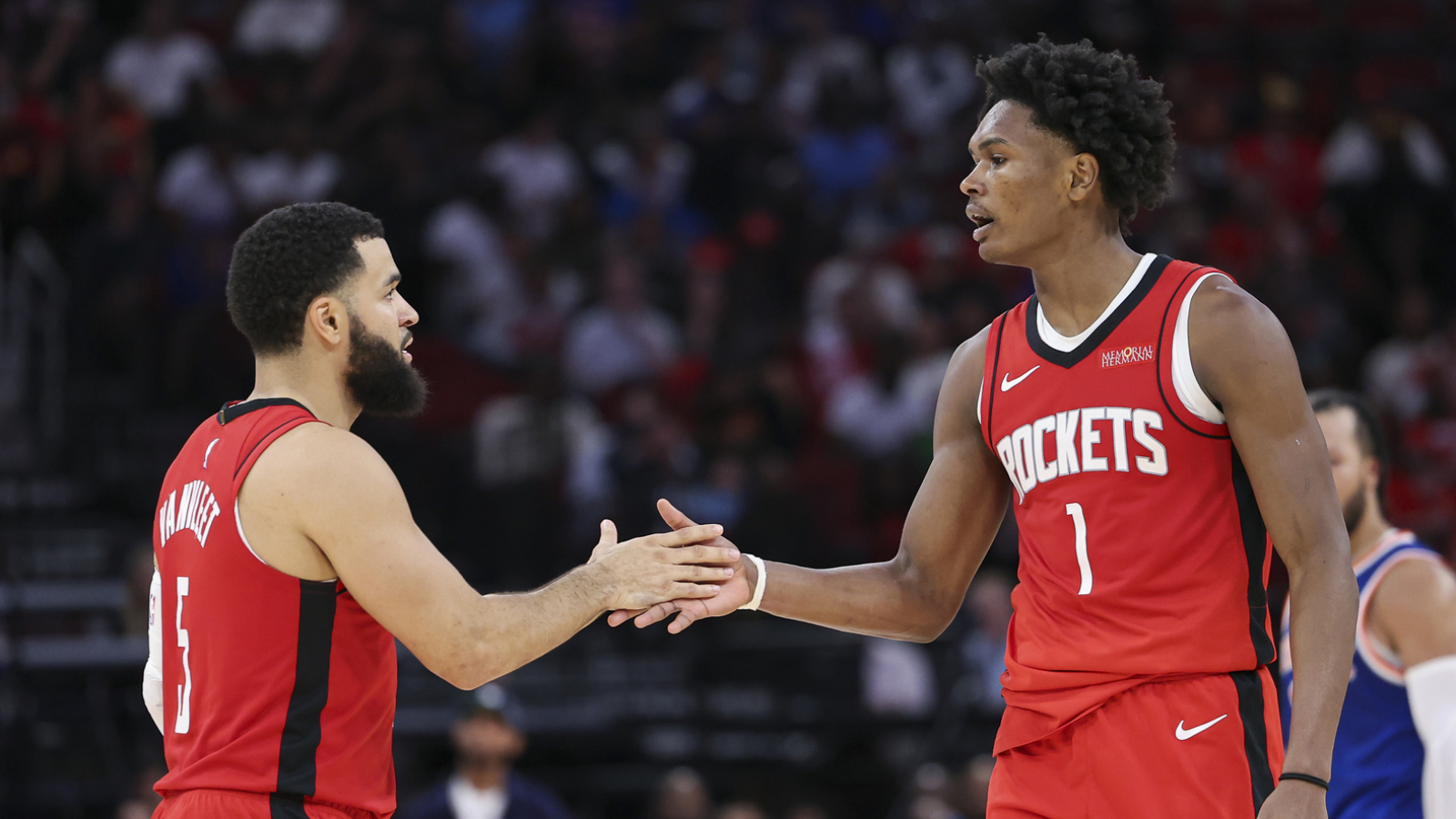After finishing last season at 41-41, falling five games short of the play-in, the Houston Rockets have emerged as one of the league’s biggest surprises. Fresh off a 117-111 overtime victory against the Minnesota Timberwolves, they boast a 13-6 record and a firm grip on third place in the Western Conference.
The Rockets have made a leap with almost no roster turnover. Instead, they have leveraged internal growth, an improved defense and a clear identity to evolve into legitimate playoff hopefuls. But in a stacked Western Conference, can they take the next step and establish themselves as a genuine title threat?
The Rockets’ rise to legitimacy starts with their work on the less glamorous end. They possess the league’s second-ranked defense, trailing only the Thunder, thanks to head coach Ime Udoka’s two guiding principles: shut down the three-point line and avoid double-teaming.
Houston allows the fourth-fewest three-point attempts per game (34.7) while holding opponents to a stingy 34.3% accuracy from beyond the arc. Their lineup of ultra-long and mobile wings on the perimeter has smothered opposing players in one-on-one situations.
Amen Thompson has held his assignments to an impressive 36.5% shooting from the field, Tari Eason to 41.9%, Dillon Brooks to 42.0% and Cam Whitmore — despite limited minutes — to 41.2%. Meanwhile, Alperen Sengun may never be an elite rim protector, but he’s transformed into a solid positional defender, giving total effort on every possession and shedding his reputation as a defensive liability.
Offensively, the Rockets rely on a balanced, score-by-committee approach, with Sengun leading the team at 18.5 points per game and Jalen Green close behind at 18.2. However, Houston’s struggles from beyond the arc have hindered their offensive success.
Houston ranks near the bottom of the league in three-point shooting, connecting on just 32.9% of their attempts. Even their top-scoring threats — Green, Sengun and Fred VanVleet — have had trouble finding consistency from deep, with VanVleet leading the group at just 32.3%.
Compounding their issues, the trio has yet to flash elite one-on-one scoring ability. Green ranks in the fifth percentile in isolation points per possession, while VanVleet and Sengun fare only slightly better, ranking in the 40th and 42nd percentiles, respectively.
The Rockets’ offensive struggles raise an important question: Can a team without a bona fide All-Star truly make a deep playoff run or compete for a championship?
History tells us no.
Last season, the Pelicans were the only squad to reach the playoffs despite not having an All-Star, and they were swept in the first round by the Thunder. In 2022-23, the Nets and Hawks made the postseason without an All-Star, but both teams were similarly eliminated in the first round. Historically, it’s almost impossible to find an example of a team making a deep playoff run — let alone contending for a title — if they don’t have at least one All-Star caliber player leading the way.
This season, the Rockets’ struggles in tight, late-game situations underscore the challenges of lacking an All-Star — particularly under the playoff-like pressure of crunch time, where opponents tighten up defensively and try to grind out wins. Despite their overtime victory against the Timberwolves, the Rockets have struggled in clutch moments where they are tied or trailing with five minutes or less left in the game. They’ve managed just a 2-5 record in these situations, shooting a dismal 22.2% from three and 39.0% overall from the field.
While some argue that the Rockets’ early-season success shows no need to consolidate their young assets in a trade for a top-20 player, history and their difficulties in close games suggest otherwise. Should a superstar become available, Houston should capitalize on the opportunity, elevating themselves from playoff hopefuls to actual contenders.
Checkout latest world news below links :
World News || Latest News || U.S. News
The post Are Houston Rockets becoming championship contenders? appeared first on WorldNewsEra.

